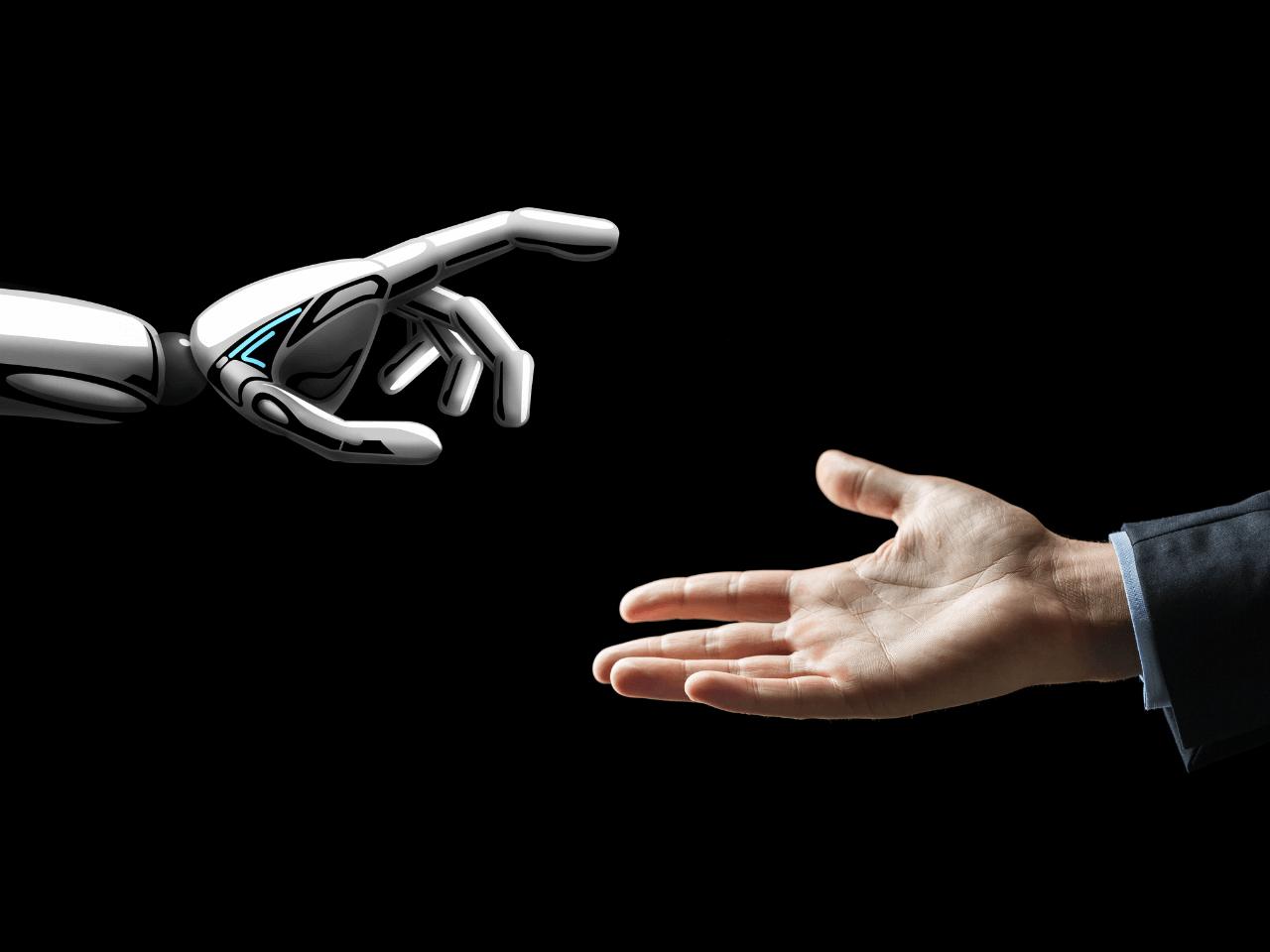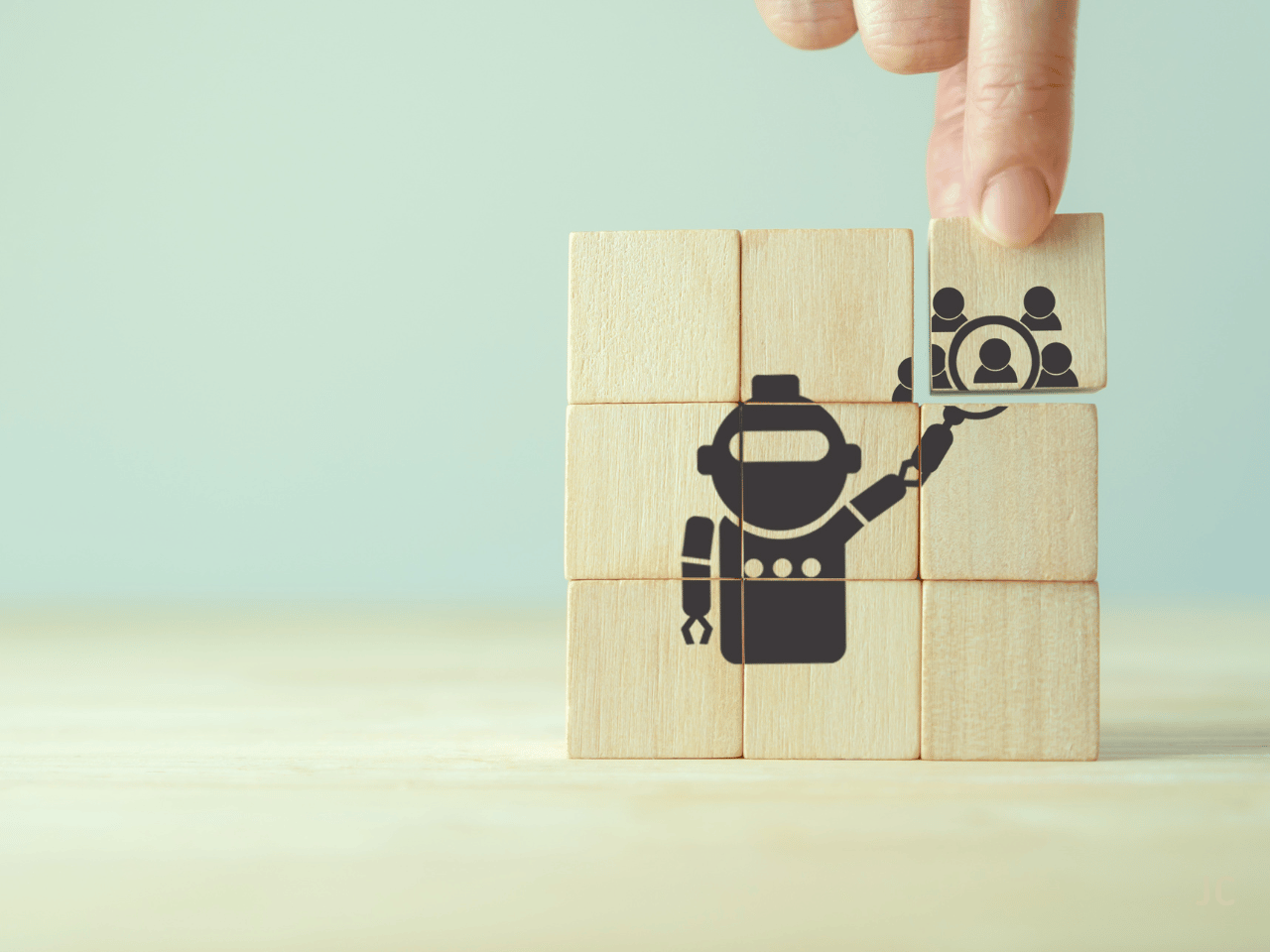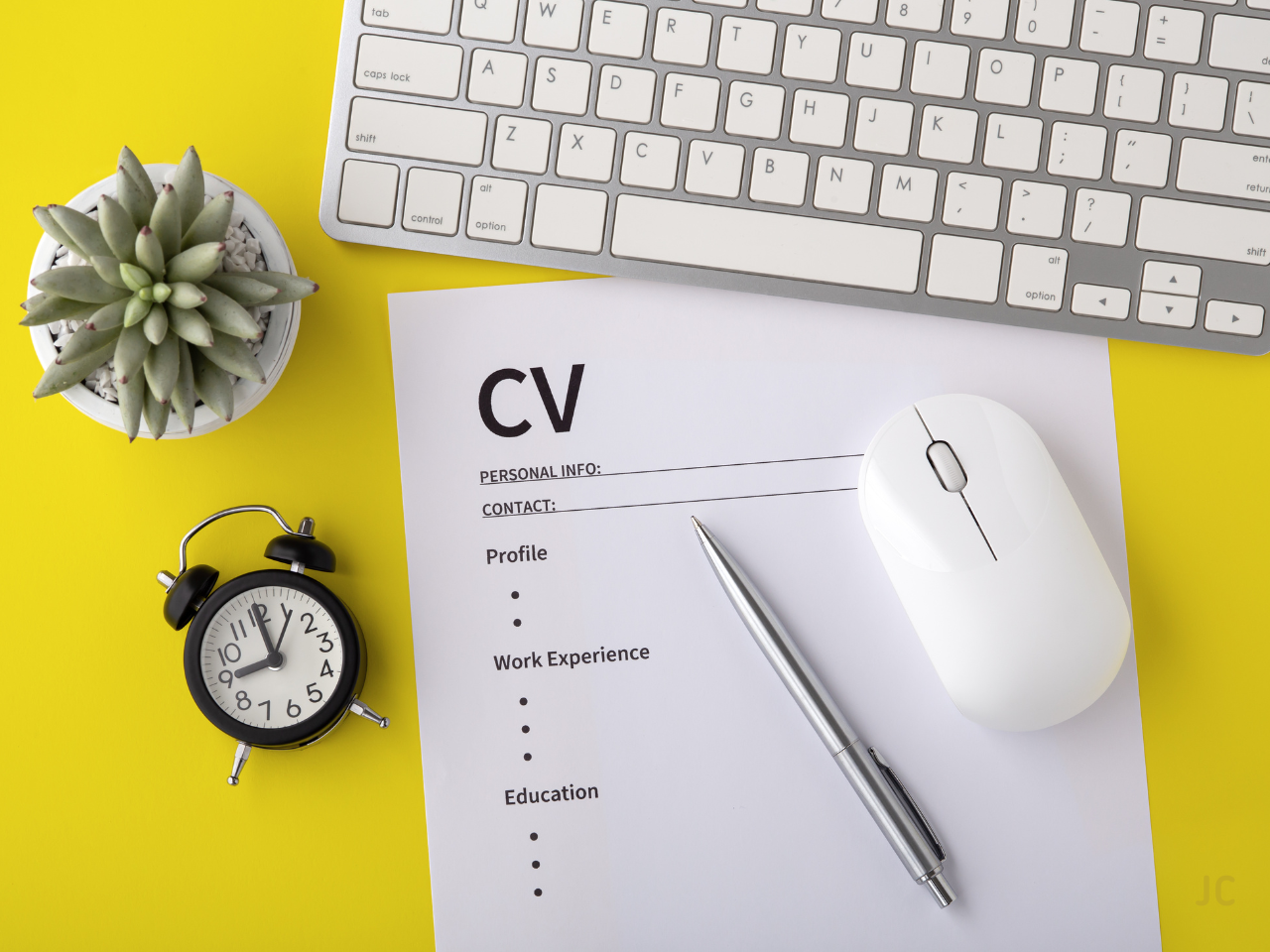
In the rapidly evolving landscape of artificial intelligence (AI), one thing remains clear: humans are essential. AI is advancing, and for it to keep being an aid, human oversight is needed to ensure that it remains ethical, that biases are detected and addressed, and that AI decision-making remains transparent.
In a recent article by The Guardian, Mary Towers, an employment lawyer running a TUC project on AI at work, had this to say:
“Making work more rewarding, making it more satisfying, and crucially making it safer and fairer: these are all the possibilities that AI offers us. But what we’re saying is, we’re at a really important juncture, where the technology is developing so rapidly, and what we have to ask ourselves is, what direction do we want that to take, and how can we ensure that everyone’s voice is heard?”
As the world latches onto the idea of AI making our lives easier, we need to be harnessing its potential through human intervention, thereby mitigating risks and safeguarding societal values. Here are some ways human oversight is invaluable when it comes to the future of AI.
Human Oversight for Nuance
While AI has made significant advancements in various domains, it still falls short when compared to human thinking in certain aspects. One of the key limitations of AI is its lack of true understanding and contextual awareness. While AI models can process and analyse vast amounts of data, they often struggle to grasp the nuances, subtleties, and underlying meaning in complex situations. Human thinking incorporates empathy, intuition, and common sense, which allows us to understand ambiguous or incomplete information and make informed decisions.
Human Oversight for Adaptability
Additionally, human thinking is inherently flexible and adaptable, capable of learning from a few examples or adjusting strategies based on new circumstances, whereas AI algorithms typically require large amounts of labelled data and retraining to adapt. This flexibility and adaptability of human thinking gives us a natural advantage in complex and dynamic environments, allowing us to quickly respond to unforeseen challenges and find creative solutions.
Humans Are AI’s Ethical Compass
Furthermore, AI systems can exhibit biases if trained on biased data, potentially perpetuating societal inequalities. These limitations highlight the need for continued research and development to bridge the gap between AI and human thinking.
When we dream of the possibilities of incorporating AI into all aspects of daily life, it is crucial that we implement safeguards to ensure that human concerns and betterment are at the forefront of that development.
Human Oversight for Anti-Bias Training
Bias detection and mitigation is a critical aspect of AI development. While AI systems are trained on vast amounts of data, this data can inadvertently incorporate biases present in society. Humans play a pivotal role in identifying and rectifying such biases, ensuring fairness and equality in AI decision-making processes.
“The balance is important when it comes to AI,” says Sasha Knott, CEO of Job Crystal. “While Crystal, our AI recruitment tool, undoubtedly makes our hiring easier, we need to constantly monitor for any unplanned ethical shortcomings. Hiring bias is an issue even for human recruiters, so to ensure that our AI isn’t falling into the same trap, we have to be constantly alert and mitigate any instances we see.”
Human Oversight for Learning and Improvement
Human oversight facilitates continuous learning and improvement of AI systems. Through constant monitoring and adjustments, humans ensure that AI remains adaptive, relevant, and delivers accurate and reliable information. Human expertise is essential in refining AI algorithms, enabling the technology to evolve and keep pace with changing circumstances and sociopolitical issues.
Some Practical Oversights to Implement
The collaboration between humans and AI is a symbiotic relationship that leverages the strengths of both parties. By combining the computational power of AI with human wisdom and intuition, we can unlock the true potential of AI and drive innovation forward.
Here are some ways to implement human oversight:
- Establish clear guidelines and regulations: Governments and regulatory bodies should develop comprehensive guidelines and regulations that define the boundaries and responsibilities of AI systems, encompassing areas such as data privacy, transparency, accountability, and human oversight.
- Ethical review boards: Set up independent ethical review boards comprising experts from diverse backgrounds. These boards can assess the potential risks and ethical implications of AI applications, providing recommendations, and ensure that human values are considered throughout development and deployment.
- Transparent decision-making processes: AI algorithms should be designed in a way that allows for transparent decision-making. This includes providing explanations for the outputs or decisions made by AI systems, allowing humans to understand and challenge the rationale behind those decisions.
- Regular audits and assessments: Conducting regular audits and assessments of AI systems can help identify biases, errors, or unintended consequences. These audits should involve human reviewers who evaluate the system’s performance, monitor its behaviour, and address any issues that arise.
- Continuous human involvement: Human oversight should be integrated into the AI system’s lifecycle, from design to deployment. Humans can be involved in the training and validation of AI models, ensuring that the data used is fair, unbiased, and representative. They can also be responsible for continuous monitoring to identify and address emerging ethical concerns or societal impacts.
- Public participation and engagement: Encouraging public participation and soliciting public input in decision-making processes related to AI can foster accountability and democratic governance. Open discussions, public consultations, and involving stakeholders from various sectors can help shape policies and ensure that AI systems align with societal values and priorities.
- Ethical AI education and awareness: Promoting education and awareness about the ethical implications of AI is crucial for both developers and users. Training programmes can help individuals understand the potential biases, limitations, and risks associated with AI, empowering them to critically assess and challenge the decisions made by AI systems.
By implementing these measures, we can strive to strike a balance between the capabilities of AI and the need for human oversight, ensuring that AI is developed and deployed in a manner that aligns with our ethical principles and societal goals.









